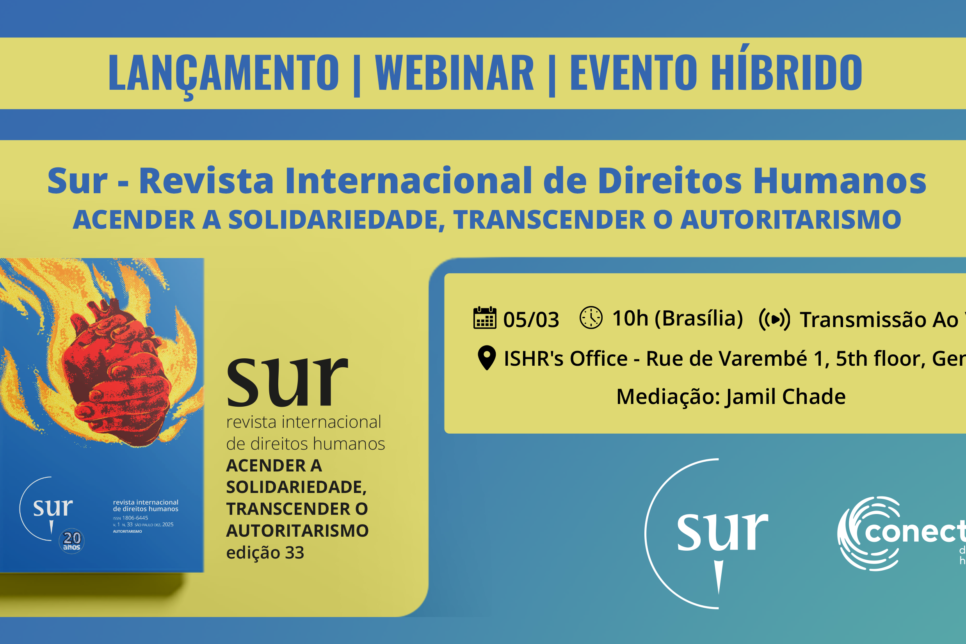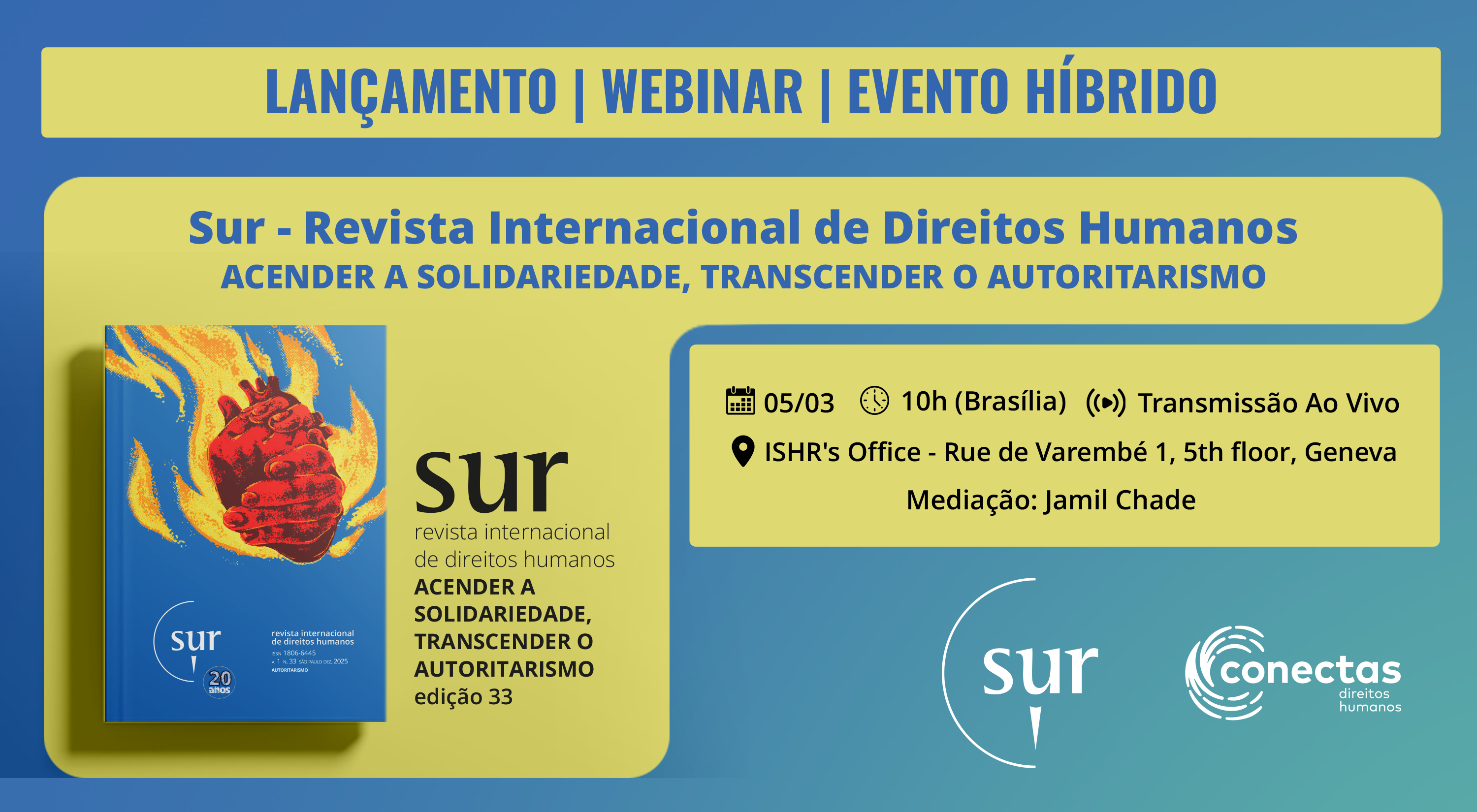Forum ends with no substantial progress
Isolated changes fail to track the defense of companies and the meeting ends without solutions for victims

12/06/2013
More than 1,700 people gathered for three days at the Palace of Nations, the headquarters of the UN Human Rights Council in Geneva, to advance the debate on business and human rights. If in the first forum on the topic, held in 2012, business enterprises, associations and consulting firms that represented their interests were the predominant voices, this time around the participation of civil society was slightly larger – which enabled cases and stories to be heard about situations in the real world.
The stronger presence of civil society organizations, however, did not mean that their claims and complaints succeeded in overcoming the strict rules of participation imposed by the organizers of the event.
Leia mais
In theory, the format of the event was devised to give States, business enterprises and civil society an equal voice. In practice, however, the structure catered to the concerns of the organizers to not subject the representatives of the private sector to embarrassment – in order to maintain their engagement in the application of the UN Guiding Principles for Business and Human Rights.
Moreover, with the exception of the opening and closing ceremonies (plenary sessions), the other debates occurred simultaneously. At times, six panels were taking place at the same time, making it difficult for the participants to have an overall vision of the meeting.
As such, just like the Regional Forum held in Medellín in August of this year, what occurred in Geneva this week was a “theatrical dialogue” marked by the absence of real opportunities to openly confront the facts and the arguments of the private sector. Once again, it was ignored that only a frank dialogue is capable of generating change – even though, for this to occur, harsh words need to be spoken and embarrassments tolerated.
Based on a detailed analysis of the strategies of the UN Working Group on Business and Human Rights, the “dissemination of the Guiding Principles and good practices” was already expected to dominate the program of the Forum.
.JPG)
By foregoing this essential exercise in self-criticism, the WG limited its role to moderating between States, companies and civil society, without presenting its own vision of the topics under debate.
Also striking was the lack of a discussion on binding rules for holding companies accountable for human rights abuses. This issue had already officially returned to the agenda of the Human Rights Council in its latest session, in September. At the time, the government of Ecuador presented a proposal on the subject in conjunction with another 85 countries.
Indeed, the WG itself had signaled at the meeting in Medellín that it was considering the need to create a binding rule under extraterritorial jurisdiction in cases of serious human rights violations – a proposal already touched upon by John Ruggie at the forum in 2012. However, neither the more generic binding instrument presented by Ecuador, nor the more restrictive rule considered by the WG appeared on the agenda in Geneva.
The merits of the meeting were few, but they need to be mentioned. One example is the possibility that the debate on the accountability of companies and States for violations committed by the private sector will advance in the regional systems for the protection of human rights.
The Inter-American Commission on Human Rights (IACHR), for example, is now expected follow up on the regional hearing held during the latest period of sessions on Extractive Industries. Progress is also expected from the Working Group on Extractive Industries of the African Commission. Everything indicates that these mechanisms will make use of a comprehensive legal framework that could include the Guiding Principles, but will not be limited to them.
The debate on state financial institutions, the subject of the panel on which Conectas participated, was an important opportunity to contrast the practices of different public financial institutions. The discussions made it even more apparent how much the Brazilian Development Bank (BNDES) needs to make progress on issues such as transparency, indigenous peoples, support for democracy and accountability.
(3).jpeg) In its coverage of the Forum, Conectas asked the question: will impunity be taken seriously? The answer that can be taken away from the meeting, regrettably, is no. The panel on access to effective legal remedies, perhaps the most urgent and relevant issue when it comes to complete reparation for victims and accountability of violating companies, was quite interesting and included presentations on the obstacles in the way of access to justice in emblematic cases, such as Trafigura and Bophal.
In its coverage of the Forum, Conectas asked the question: will impunity be taken seriously? The answer that can be taken away from the meeting, regrettably, is no. The panel on access to effective legal remedies, perhaps the most urgent and relevant issue when it comes to complete reparation for victims and accountability of violating companies, was quite interesting and included presentations on the obstacles in the way of access to justice in emblematic cases, such as Trafigura and Bophal.
A description of the barriers to an effective legal remedy can be found in the Guiding Principles themselves. They were extensively explored in a debate organized by Conectas and the International Federation for Human Rights (FIDH) in 2012 and in a report prepared by Conectas in partnership with the International Commission of Jurists. It was necessary, therefore, to make progress on the solutions, since the mapping of the problem is already quite complete.
In the cold of Geneva, the small protest organized at the entrance to the UN mildly disrupted the formality of the event and exposed the dissatisfaction of civil society with the status quo. Next year, the rules and the interests preventing a frank and sincere dialogue need to be questioned even more directly.






